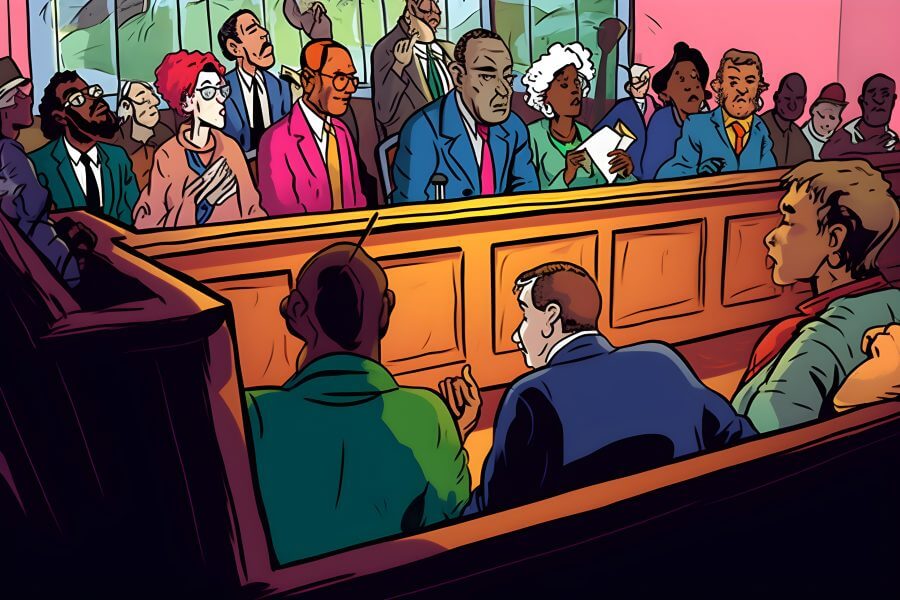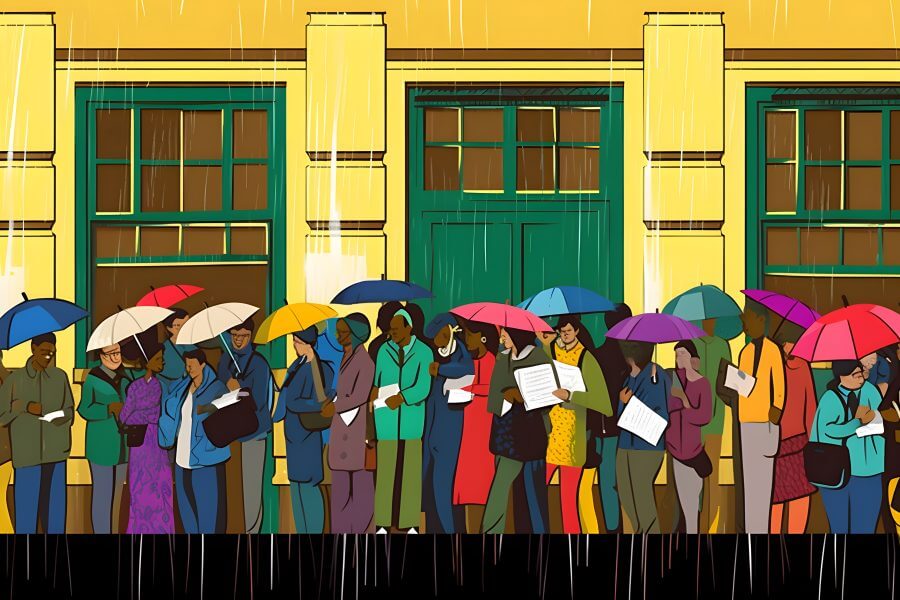In recent times, the political landscape in the United States has been characterized by intense debates and legal battles over immigration policies. Among them, the Republican lawsuit challenging the humanitarian parole implemented by the Biden administration stands out.
The Republican lawsuit against President Biden’s immigration policy emerged as a key point of contention within U.S. politics. To understand its implications, it is essential to unpack the core components of this legal challenge, and its ramifications for the country.
At Jaskot Law, we explain what the Republican lawsuit is about, what are the legal arguments, and what is the public response to this measure against the Biden administration.
Origin of the lawsuit against humanitarian parole
The lawsuit in question was filed by prominent Republican figures. They argue that President Biden’s immigration policies are unconstitutional and violate U.S. sovereignty.

Central to their argument is the assertion that the president’s actions led to a significant increase in undocumented immigrants entering the country. In addition, they claim that this leads to an overload of resources and possible security risks.
Legal arguments against humanitarian parole
According to the Republican Party, the filing of this lawsuit revolves around certain important issues. Among them, the following stand out:
a. Constitutional Concerns
One of the main arguments presented by Republicans is that President Biden exceeded his executive authority, as only Congress possesses such power. This controversy triggered a heated legal debate over the scope of executive authority in immigration matters.
b. National Security
The lawsuit claims that the increase in undocumented immigration creates vulnerabilities at the border. In addition, it is argued that the administration’s leniency towards undocumented immigrants would pose a threat to national security by allowing people with malicious intent and criminals to enter the country.
c. Economic Impact
Republicans argue that increasing pressure on public resources, such as health care and education, places an unfair burden on taxpayers. This resonates with those who are concerned about the financial implications of humanitarian parole.
Are you concerned that you do not fully understand the issues around which this lawsuit revolves? Don’t worry, at Jaskot Law, we can guide you and provide you with clear and concise information. Contact us!
Possible Consequences of the Lawsuit for Humanitarian Parole
The outcome of this lawsuit could have far-reaching consequences for the country’s immigration policy. Below, we explore the possible outcomes and their implications:
| Result | Consequences |
| Ruling in favor of Republicans | – Possible revisions to Biden’s immigration policy. – Strengthening the authority of Congress in immigration matters. – A possible shift towards stricter immigration control. |
| Ruling in favor of Biden | – Continuation of humanitarian parole. – Strengthening executive authority in the formulation of immigration policies. |
Public Response to the Republican Lawsuit
Public opinion on the lawsuit is polarized, with both sides of the political spectrum strongly defending their views. The following is a breakdown of the responses:
- Defenders of the Lawsuit
Supporters of the lawsuit argue that it is necessary to protect national security and preserve public resources. In addition, they believe that stricter immigration control is vital to achieving these objectives.
- Opponents of the Lawsuit
Advocates for more compassionate immigration policies see the lawsuit as an attempt to undermine the rights of asylum seekers and vulnerable populations. They also argue that a more humane approach is needed to address immigration issues.

Whether you are for or against the Republican lawsuit against humanitarian parole, knowing the background of both sides allows you to understand how this policy works. At Jaskot Law, we provide you with the details so that you are informed about this measure.
Conclusion
The legal battle over humanitarian parole will face its pivotal point this week, the outcome of which could significantly reshape the country’s immigration landscape. The legal arguments, potential consequences, and public response underscore the complexity and importance of this issue. As the court deliberates, its decision will undoubtedly reverberate throughout the country.
At Jaskot Law, our team of immigration law attorneys keeps abreast of the latest developments in the field, and provides you with up-to-date and relevant information that can help you navigate the ups and downs of immigration policy.
Source
Frequently Asked Questions
Why is humanitarian parole important in the United States?
Talking about humanitarian parole is important in the United States because it has a significant impact on politics, the economy, and society. Immigration policy decisions affect millions of people and can shape the demographics and culture of the country.
What does it mean to obtain a humanitarian parole?
USCIS exercises its discretion in granting temporary permits, known as “parole.” These allow persons who would otherwise be inadmissible or ineligible to enter the United States to travel to and remain temporarily in the United States.
How long does the humanitarian parole permit last?
According to USCIS, the maximum duration of the temporary stay permit is one year. In addition, in accordance with section 3 of Form I-131, the exact duration will be determined by the purpose of the permit.

